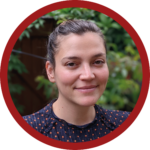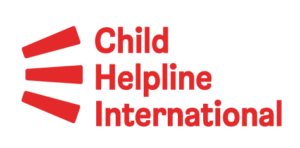In the last week of March, a group of 32 participants and 9 trainers came together in the beautiful city of Prague, Czechia, to learn about some of the most pressing issues emerging from the war in Ukraine.
The event was organized in collaboration with our partners from UNICEF ECARO and UNICEF Czech Republic and was addressed to Czech child helplines and frontline workers. Specifically, participants came from
- Linka Lia, a child helpline catering to Ukrainian children and families
- OPU, the Organization for Aid to Refugees
- Cesta z Krize, a crisis helpline
- Mriya, providing aid to Ukrainian refugees in the Czech Republic
- The Czech Red Cross
- Municipality of Prague
On the first day, we were welcomed to the workshop by our own Eva Veldhuizen-Ochodnicanová (Child Protection & GBV Expert) and Ronja Ulvfot (Regional Manager Europe), who gave a brief overview of our work. Irma Gabriadze (Child Protection Specialist, UNICEF) presented UNICEF’s recent activities in Czechia regarding the Ukraine crisis and the refugees that arrived in the country.
After lunch and a short ice-breaking activity, sessions were held to increase counsellors’ and frontline workers’ awareness and knowledge of two important and relevant topics. First, Eva presented the phenomenon of Trafficking in Human Beings (THB) in the context of the current war in Ukraine, and Dr Craig Barlow (The Wilberforce Institute) delivered training on conflict-related Sexual and Gender-Based Violence (SGBV). We then shared a dinner in the fabulous and historic Café Savoy.
The second day began with a pre-recorded presentation by Magda Zimnowoda, our Quality, Research & Data Officer, on standards and guiding principles for child helplines responding to emergencies. Dr Dulia Enkhtor (Clinical Psychologist and trauma specialist) delivered a powerful training on trauma-informed care of children and young people. To finish off the second day, we heard from Dr Maggie Brennan (Dublin City University), who presented practical tips and tools to promote counsellors’ wellbeing, and we learned about concepts such as compassion fatigue, secondary trauma and burnout.
On the third and final day, a panel of experts shared their knowledge and experience on a wide range of topics. Alyona Samar, Ukraine Officer for Missing Children Europe, spoke about forced deportations and missing children in Ukraine; Alexandra Malangone spoke about her experience as a human rights lawyer tackling the vulnerablities of unaccompanied and separated minors; Zoé Colpaert and Dr Maggie Brennan discussed Online Child Sexual Exploitation and Abuse in relation to the Ukrainian context; and Dr Craig Barlow discussed Child Criminal Exploitation.
Lastly, we conducted two roundtable sessions, moderated by Ana Rodrigues (Coordinator of our Ukraine Crisis Response). In the first, participants were able to share their experiences and identify challenges their organisations have been facing and those they expect to face in the near future. In the second, participants brainstormed solutions for these challenges. Although many challenges indeed exist, from uncertainty regarding funding to lack of cooperation across organisations and increasing discrimination against Ukrainian refugees – some brilliant solutions were proposed. Workshops like this one might, in themselves, also help overcome some of these challenges, by providing opportunities for communication, cooperation and support.
It was truly inspiring to see the engagement and effort the participants put into the three days through their active discussions and insightful comments. Likewise, the expertise and knowledge of the trainers left me much better informed in all matters related to mental health and psychosocial support during crises and emergencies. I would like to extend a particularly very warm thank you to the team from Prague Municipality for their fantastic hospitality!
At the end of her session on trauma-informed care, Dulia asked the participants to choose a single word that captured how they were feeling at that very moment. Many of those words seem fitting to sum up the entire event: grateful, privileged, strong, understood, heard and empowered.
Anastasia Shuster
Data & Research Officer


